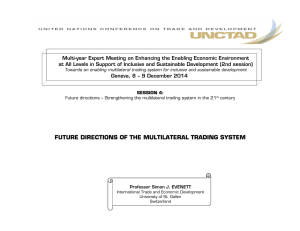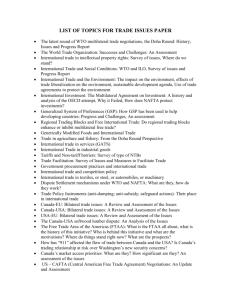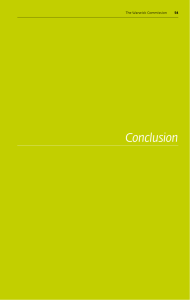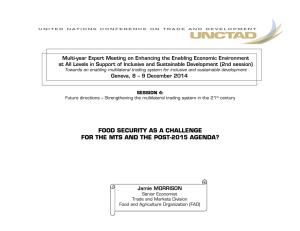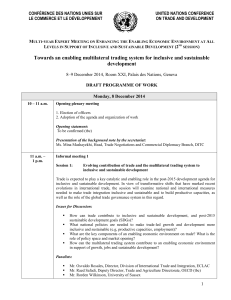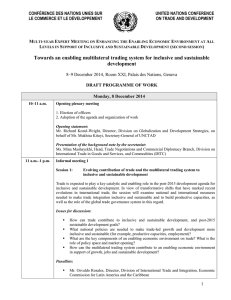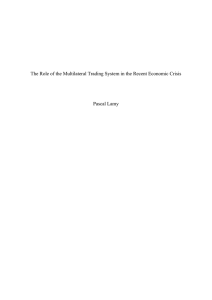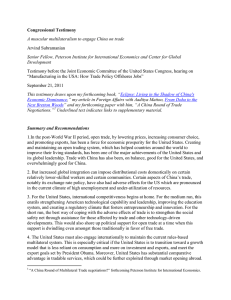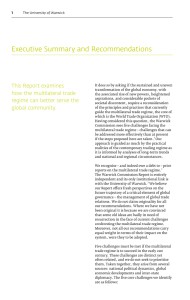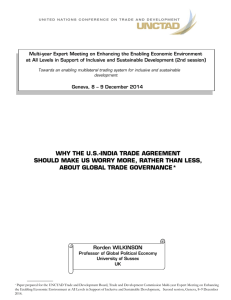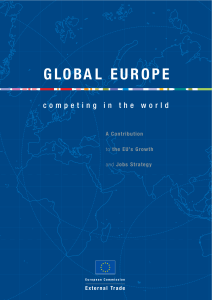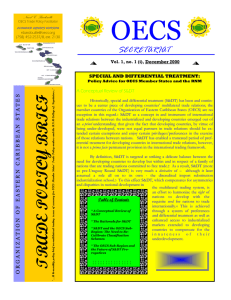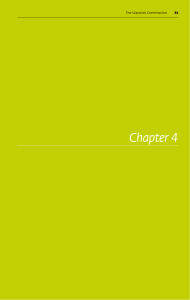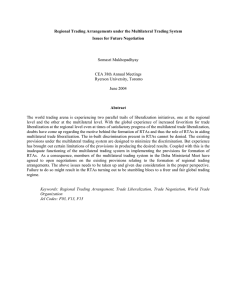Opening statement by the Secretary-General of UNCTAD
advertisement
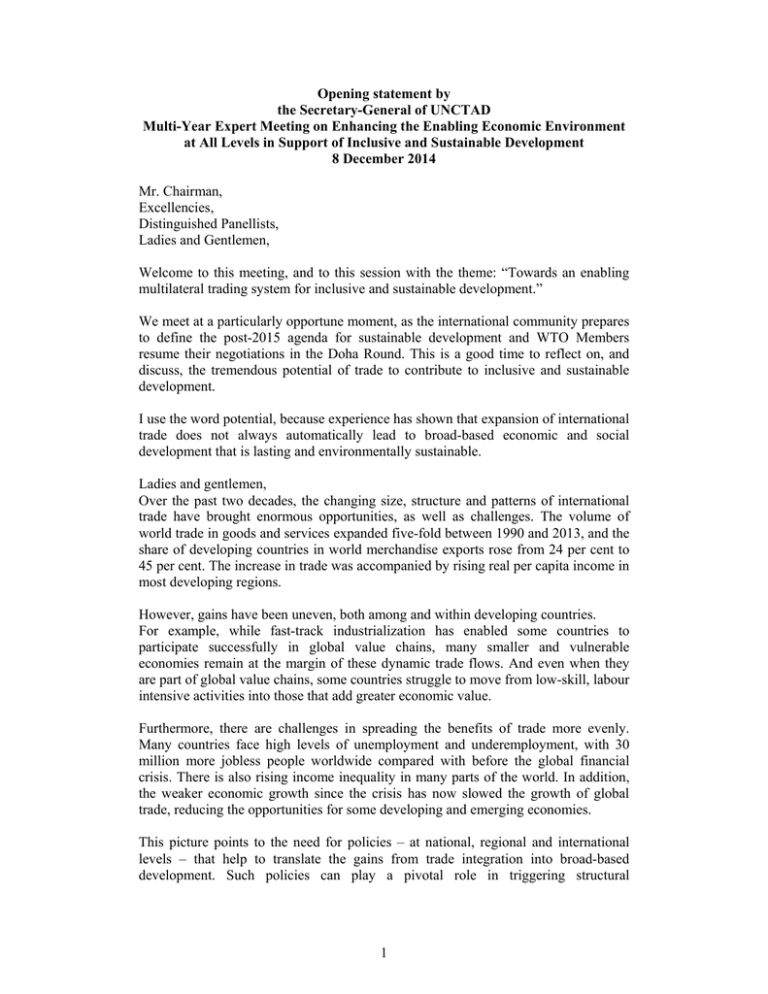
Opening statement by the Secretary-General of UNCTAD Multi-Year Expert Meeting on Enhancing the Enabling Economic Environment at All Levels in Support of Inclusive and Sustainable Development 8 December 2014 Mr. Chairman, Excellencies, Distinguished Panellists, Ladies and Gentlemen, Welcome to this meeting, and to this session with the theme: “Towards an enabling multilateral trading system for inclusive and sustainable development.” We meet at a particularly opportune moment, as the international community prepares to define the post-2015 agenda for sustainable development and WTO Members resume their negotiations in the Doha Round. This is a good time to reflect on, and discuss, the tremendous potential of trade to contribute to inclusive and sustainable development. I use the word potential, because experience has shown that expansion of international trade does not always automatically lead to broad-based economic and social development that is lasting and environmentally sustainable. Ladies and gentlemen, Over the past two decades, the changing size, structure and patterns of international trade have brought enormous opportunities, as well as challenges. The volume of world trade in goods and services expanded five-fold between 1990 and 2013, and the share of developing countries in world merchandise exports rose from 24 per cent to 45 per cent. The increase in trade was accompanied by rising real per capita income in most developing regions. However, gains have been uneven, both among and within developing countries. For example, while fast-track industrialization has enabled some countries to participate successfully in global value chains, many smaller and vulnerable economies remain at the margin of these dynamic trade flows. And even when they are part of global value chains, some countries struggle to move from low-skill, labour intensive activities into those that add greater economic value. Furthermore, there are challenges in spreading the benefits of trade more evenly. Many countries face high levels of unemployment and underemployment, with 30 million more jobless people worldwide compared with before the global financial crisis. There is also rising income inequality in many parts of the world. In addition, the weaker economic growth since the crisis has now slowed the growth of global trade, reducing the opportunities for some developing and emerging economies. This picture points to the need for policies – at national, regional and international levels – that help to translate the gains from trade integration into broad-based development. Such policies can play a pivotal role in triggering structural 1 transformation and building robust productive capacities that open the way to diversification, technological upgrading and job creation. Ladies and gentlemen, In this context, the international trading system can and should provide an overarching enabling environment in which trade can play a catalytic role in sustainable development. A fair, predictable, equitable and functioning multilateral trading system is a global public good. This needs to be supported and upheld. That is why the recent achievement of WTO Members in moving ahead with the agreements reached last year in Bali is so significant. Yet, it is also true that the multilateral trading system faces challenges in reinforcing its relevance by delivering negotiated outcomes and by strengthening its architecture to respond better to changing economic realities and global challenges. Let me highlight a few issues relevant to today’s discussion on how to enhance the “enabling” nature of the trading system. The first concerns the argument for deeper trade liberalization focussed on facilitating participation in global value chains. This argument may need to be weighed against the fact that tariffs and industrial policies continue to be important tools in developing countries to build productive capacity, trigger structural transformation and promote upgrading within global value chains. The second issue relates the possibility of updating the WTO rule book to reflect better the increased interaction of trade with broader public policies, which has been a source of trade disputes. An example of such tension involves the relationship between policies on trade and those on climate change or green growth. Is such change warranted, and what are systemic and development implications? Thirdly, we need to reflect on how to strengthen the trading system. This includes considering how it can reflect more the new and emerging concerns of developing countries. We also should look at ways of reinforcing the system’s capacity to deliver negotiated outcomes, especially in light of parallel plurilateral and regional negotiating processes. Fourth, the growth in regional and mega-regional trade agreements raises questions of coherence with the international system that need to be addressed. Mr. Chairman, In addition to these specific issues regarding the multilateral trading system, there is also the wider need to identify the policies that help trade to act as an enabler of sustainable development. This will be especially important in the discussions on the means for implementing the Sustainable Development Goals. Your work here offers the opportunity to contribute to this process. I wish you success in your deliberations. Thank you. 2
